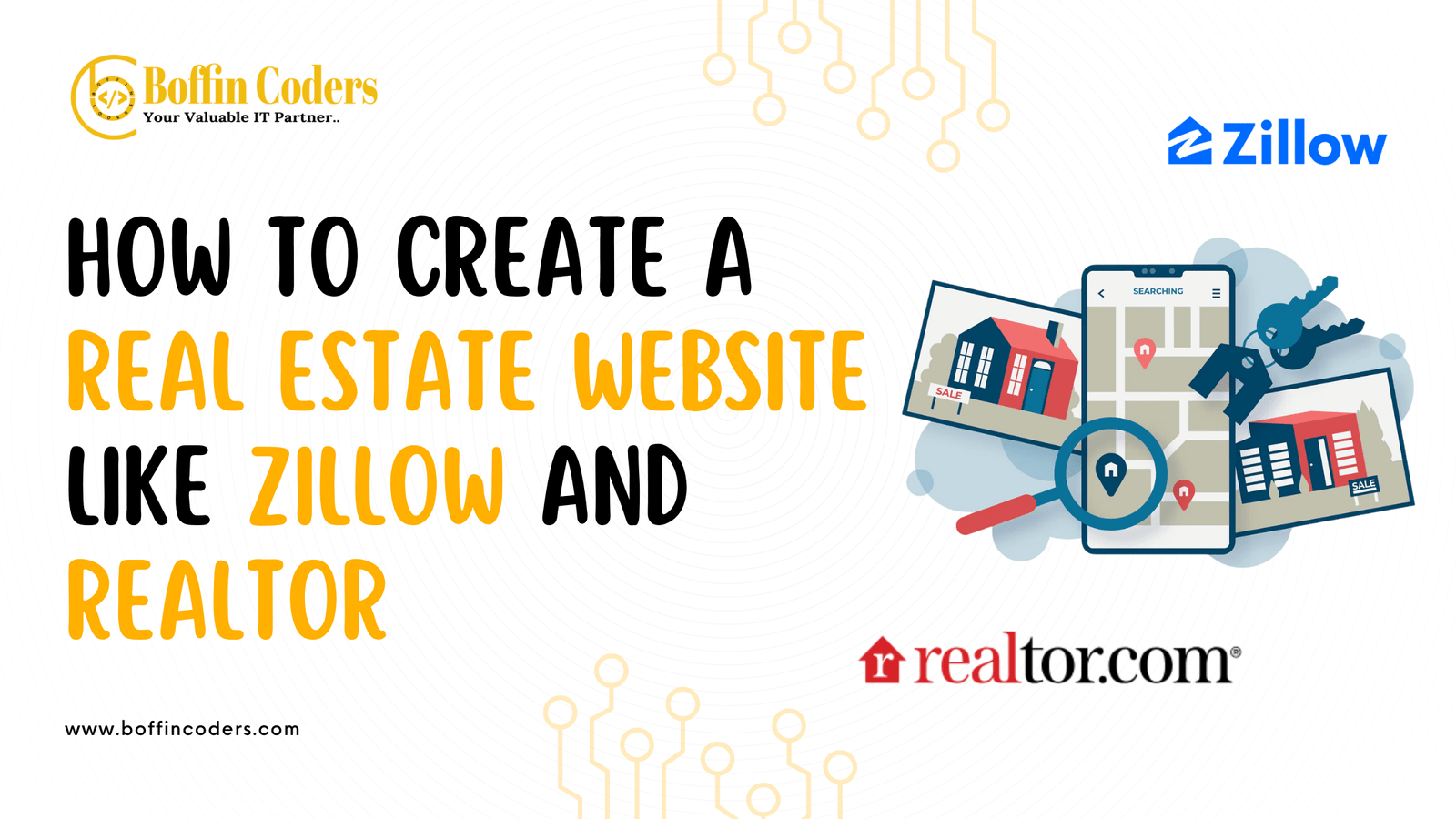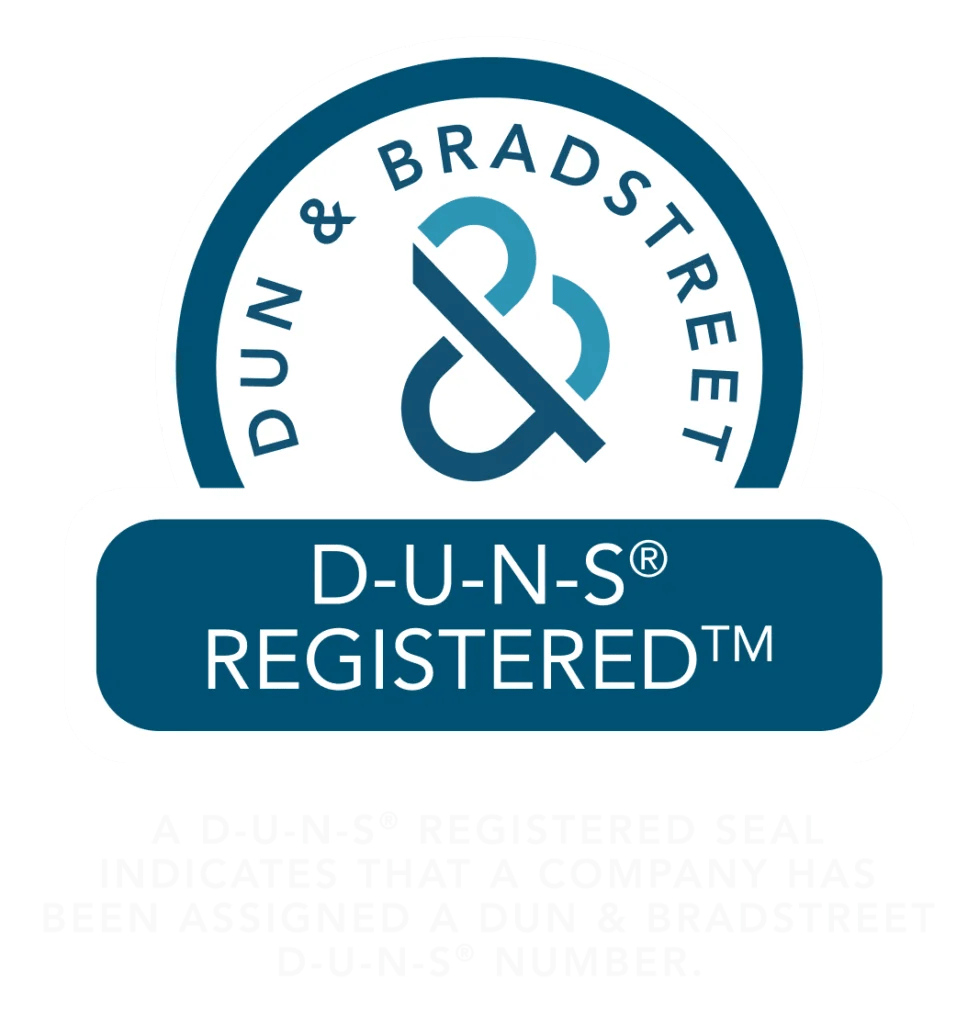In the fast-moving world of Real Estate, having a robust online presence is crucial. Platforms like Zillow and Realtor have set the benchmark for successful real estate websites. If you’re considering creating your own, this guide will take you through essential steps, emphasizing the importance of market research, choosing the right technology stack, and developing effective property listings and search functionality. As the real estate industry evolves, a robust online presence becomes not just a choice but a necessity for those aspiring to be among the best real estate websites. Catering to the needs of both agents and the discerning market.
Zillow
Zillow is a popular online platform that helps people buy, sell, and rent homes. It’s like a big digital hub where you can find lots of houses and apartments listed for sale or rent. On Zillow, you can explore detailed property information, see pictures of homes, and even get an estimate of a home’s value. It’s a handy tool for both home buyers and sellers, offering a user-friendly experience to navigate the world of real estate.
Realtor
Realtor stands out as one of the most accurate real estate listing platforms, affiliated with over 570 MLS databases across the US. On the Realtor website, users can search for real estate listings, explore new homes, shop for mortgages, and access property records.
The platform, older than Zillow and Redfin, is recognized as the official partner of the National Association of Realtors. Realtor allows users to take virtual tours of houses, condos, and apartments. If you’re interested in creating a similar platform, partnering with a top mobile application development agency can help you list a wide range of properties in your app. Developing a real estate app involves careful consideration of various factors, so be sure to check them out to make a successful entry into the market.
Understanding the Landscape: The Need for Market Research
Before embarking on the journey of creating your real estate websites, it’s vital to delve into market research. This phase lays the foundation for a successful venture by providing insights into the dynamics of the real estate industry. Here’s why a thorough market researcher is crucial.
- Identifying Trends and Demands: Market research helps you understand current trends and demands in the real estate sector. This knowledge enables you to tailor your website to meet the preferences and needs of your target audience.
- Analyzing Competitors: You may find them by researching competitors’ real estate websites, such as industry giants Realtor and Zillow. By providing distinctive features or services, you may set your platform apart from the competition by analyzing them.
- Understand the Target Audience: It’s critical to understand your target audience. Market research provides valuable information on the expectations, behaviors, and interests of your target users. Decisions about functionality, design, and user experience are guided by this knowledge.
- Determining Key Features: You may determine the aspects that most appeal to people by doing market research. Knowing what clients value—be it virtual property tours, interactive maps, or advanced search options—allows you to prioritize features as they are being developed.
Choosing the Right Technology Stack: A Solid Foundation for Success
Once armed with insights from market research, the next step is choosing the right technology stack for your real estate website. The technology stack encompasses the tools and frameworks that power your platform. Consider the following factors when making these crucial decisions:
- Scalability: Ensure your chosen technology stack is scalable to accommodate growth. As your real estate platform expands, the technology should seamlessly adapt to increased traffic and data.
- Security: Real estate websites deal with sensitive information. Prioritize security to protect user data and maintain trust. Implement encryption, secure authentication methods, and regular security audits.
- User Experience (UX): The technology stack plays a significant role in determining the user experience. Opt for frameworks and tools that facilitate the development of an intuitive and responsive design, enhancing the overall usability of your website.
- Integration Possibilities: Consider the integration capabilities of your chosen stack. Seamless integration with MLS (Multiple Listing Service) is often a necessity for real estate websites. Ensure your technology allows for this integration and other third-party services.
Must-Have Features: Property Listings and Search Functionality
The heart of any real estate website lies in its property listings and search functionality. Here’s why focusing on these elements is crucial:
- User-Friendly Navigation: Design your property listings to be easily navigable. Users should quickly find the information they’re looking for, including property details and contact information.
- Comprehensive Search Features: Implement advanced search options to cater to diverse user needs. Allow users to filter properties based on location, price range, amenities, and other relevant criteria. A powerful search engine enhances user satisfaction.
- Visual Appeal: Invest in high-quality images and compelling property descriptions. Visual appeal significantly influences user engagement. Virtual tours and interactive maps can also enhance the user experience.
- MLS Integration: Consider integrating your website with MLS to access a comprehensive database of property listings. MLS integration ensures that your platform provides up-to-date and accurate information, giving users confidence in your listings.
- High-Quality Images and Descriptions: Eye-catching visuals and informative property descriptions are crucial. Zillow and Realtor invest in high-quality images and compelling content to showcase properties effectively.
- Mobile Responsiveness: Recognizing the prevalence of mobile users, Zillow and Realtor prioritize mobile responsiveness. Their websites are optimized for various devices, ensuring a seamless experience for users on smartphones and tablets.
- Real-Time Updates: Keeping information current is crucial in the dynamic real estate market. These platforms provide real-time updates on property availability, pricing changes, and other relevant details.
Real Estate Website Development Process:
Let’s simplify the process by breaking it down into easy steps:
- Explore the Need: Begin by understanding why you want a real estate website. It is to show parcels, connect buyers with merchandisers, or give precious information about the request.
- Check Similar Websites: Take some time to delve into what is formerly out there. Look at other real estate websites, see what works well, and think about what you’d like to do else. Understanding what people like and need is the first step to creating something they’ll love.
- Plan Your Features: Decide what features your website will have. Do you want a simple platform for property listings, or are you assuming more advanced features like virtual terms? Planning your features will help you stay focused during the development process.
- Choose Your Tech Tools: Now, let’s get a bit specialized. Choose the tools and technologies that will bring your website to life. Suppose how presto you want your website to be, how secure it needs to be, and how it’ll look on different devices like phones and computers.
- Website Design: The appearance of your website is important. Work on creating a design that is not only visually charming but also easy to navigate. Users should be able to find what they need without getting lost in a maze of links. It’s better to hire a web design agency for this task.
- Website Development: Launch building the basic structure of your website. This is like laying the foundation of a house. Focus on getting the core features in place, so your website has a solid base to grow from. You can hire a web development company for this task.
- Testing: Before you invite people to your virtual home, test everything! Click on buttons, try out search features, and make sure everything works easily. Testing helps you catch any issues before your visitors do.
- Launch and Learn: Congratulations, your real estate website is ready to meet the world! Launch it and pay attention to how people use it. Hear their feedback and be ready to make improvements. The learning process does not stop then; it’s an ongoing trip.
Hiring a website development company for the above process makes your trip smooth.
How to Build a Real Estate Marketplace Website Similar to Zillow and Realtors
Here are the key steps to develop your own real estate marketplace:
- Validate your property marketplace idea by conducting market research and analyzing the needs of your target audience.
- Implement essential features that are core to a successful real estate platform.
- Define the technology stack required for your marketplace.
- Create a Minimum Viable Product (MVP) and design a user-friendly interface (UI/UX).
- Launch your pilot project and conduct thorough testing to ensure functionality and user satisfaction.
Comparison Between Zillow and Realtor
Zillow vs. Realtor in 2024: A side-by-side comparison:
| Criteria | Zillow | Realtor |
| Founded | Established in 2006 | 1996 |
| Employees | 6400 | 1617 |
| Automated Valuation Model | Zestimate | Home Value Estimate |
| Brokerage Status | Has licence but doesn’t hire agents | Register as an agent |
| Listings Sources | Aggregates listings from MLS and other sources | Primarily listings from MLS data |
| Search Functionality | More Advanced with detailed filters and AI-powered recommendations | User-friendly with basic but effective search options |
| Mobile App | Highly intuitive and features-rich app | Good app with basic search and browsing functionality |
| Pricing Model | Free for the user, revenue from advertising, and premier agent program | Free for the user, revenue from agent subscription and advertising |
| Best For | Buyers and sellers looking for a wide range of listings and innovative features | Buyers and sellers who prioritize accuracy and agent connections |
This comparison table provides a quick overview of key features for Zillow and Realtor, assisting users in understanding the strengths and offerings of each platform at a glance.
How Much Does It Cost to Create A Real Estate Marketplace App Like Zillow or Realtor?
Creating a real estate app like Zillow or Realtor is an exciting endeavor, but costs can vary based on crucial factors. To navigate the financial landscape, consider the following breakdown:
For a Basic App:
- Features include core functionalities such as property browsing and agent contact.
- The estimated cost falls within the range of $40,000 to $60,000.
- Development location plays a role: Eastern Europe averages $79 – $140/hour, while the USA ranges from $50 – $240/hour.
- Platforms differ slightly, with Android being slightly more affordable compared to iOS, which faces slightly higher costs due to stricter guidelines.
For an Advanced App:
- Additional features encompass personalized recommendations, real-time tracking, booking functions, loyalty programs, etc.
- The estimated cost extends from $50,000 to $100,000 and beyond.
- Development location and platforms align with the Basic App
Conclusion
Creating a real estate website like Zillow and Realtor is an exciting adventure. To succeed, you need to understand what people want in the real estate market. By learning from the best real estate websites and using advanced technology, you can make a website that stands out. Whether you’re helping real estate agents or providing services in the real estate industry, it’s important to make a website that is easy to use and looks good.
If you’re ready to start your journey toward creating a real estate website, reach out to us at Boffin Coders. We can help you with the expertise you need to make a great website, connect with top real estate agents, and be successful in the competitive real estate market. Let’s build the next-generation real estate website together!






